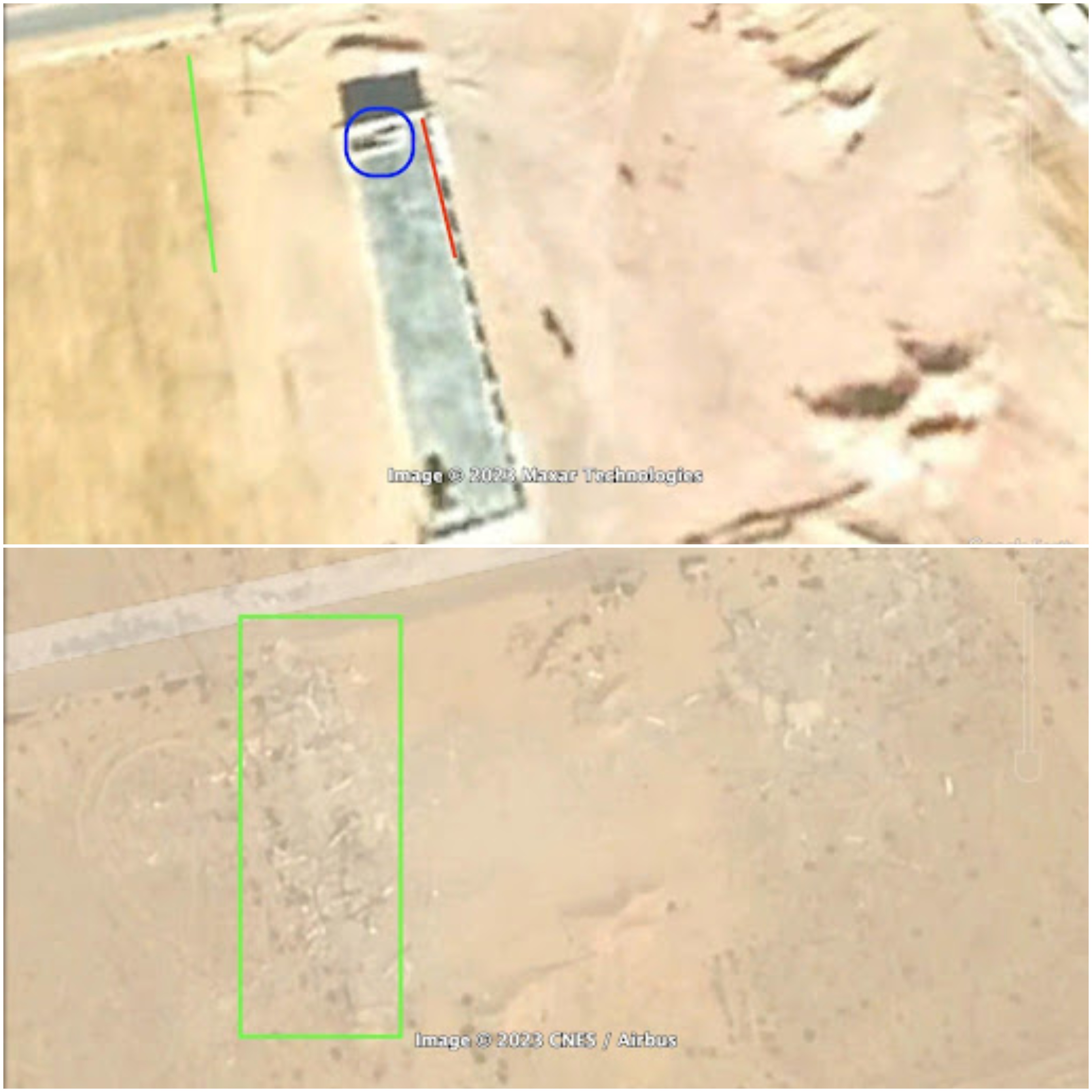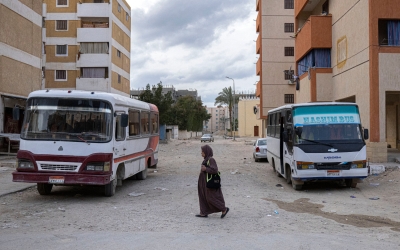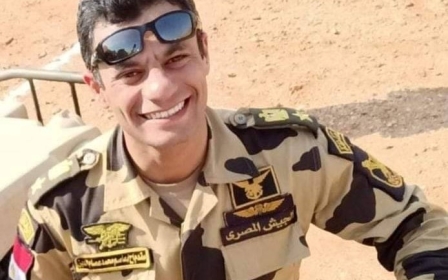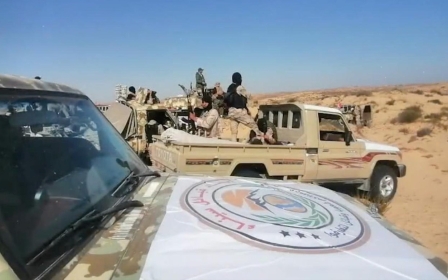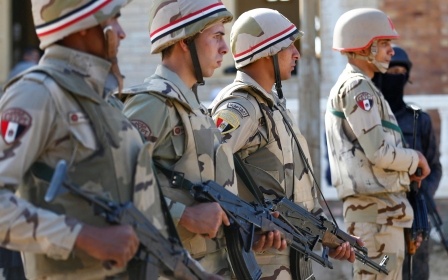Egypt: Army 'unnecessarily' destroyed schools in Sinai
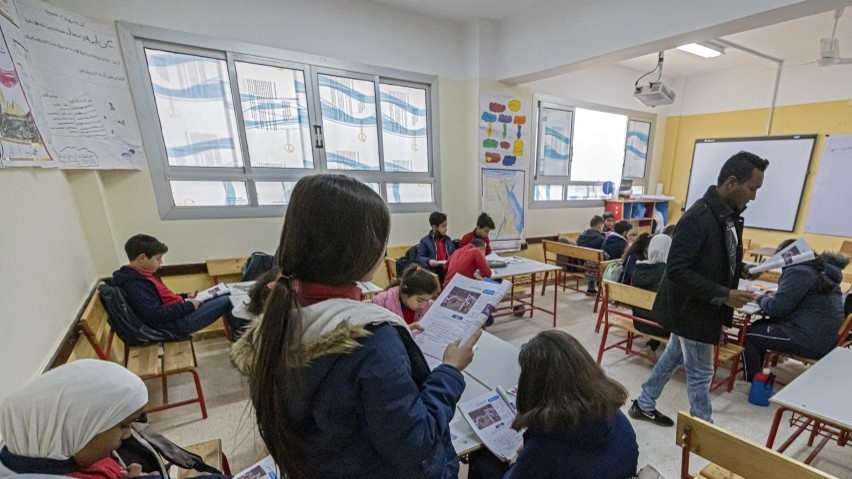
The Egyptian army "unnecessarily" destroyed schools in the Sinai Peninsula in its war against militants, forcing a generation of pupils out of school, according to an investigation by a rights group.
Preliminary findings after months-long research by the Sinai Foundation for Human Rights (SFHR), which were shared with Middle East Eye, show the impact of the army's operation on education in the restive North Sinai.
The London-based group found that at least 59 schools have been demolished or attacked, and 37 schools have been turned into military bases in the 10-year war, which was first reported by The Guardian. Most schools affected are public schools covering primary and preparatory stages of elementary education.
The cases documented by SFHR include the destruction of two schools: the Arab Belli Primary School and Preparatory School in the Arab Belli tribal community, part of al-Hasana city, south of el-Arish city.
The organisation does not have confirmed information on the date of the demolitions. But according to Ahmed Salem, SFHR's executive director, the available eyewitness accounts indicate the schools were demolished either in the latter half of 2020 or early 2021.
New MEE newsletter: Jerusalem Dispatch
Sign up to get the latest insights and analysis on Israel-Palestine, alongside Turkey Unpacked and other MEE newsletters
The schools, according to SFHR, were unnecessarily destroyed by the army, since they were located at least 15 kilometers from the buffer zone the state had declared around Arish airport.
Salem said the demolishing of the two schools "caused a community-wide shock", as it happened overnight with no prior explanation and in conjunction with the demolitions of homes in the area.
“After the seizure of both schools, they were used as a military base by the army for a period of up to a year and a half, before the army returned and demolished the two schools and blew up the locals' homes in Arab Belli," Salem told MEE.
The two photos below, from November 2017 and March 2021, show before and after images of the Arab Belli Primary School.
According to Salem, the SFHR did not record any military operations during the period of the army's takeover of the two schools, nor were there any operations officially announced at the time. Militants have also not claimed any attacks in the area.
"This makes the bombing of the two schools after they were used militarily, and then the bombing of civilian homes in the village, a horrific violation that took place without urgent military necessity,” Salem told MEE.
He added that the damage to schools has led to "a compromised education system", as scores of students were left with no education and heightened illiteracy.
He said the demolitions and lack of remedy for students constitute a violation of Egypt's obligations under the UN Convention on the Rights of the Child and the International Covenant on Economic, Social and Cultural Rights, both of which Egypt has ratified.
International humanitarian law also prohibits attacks on schools or using them for military purposes, and children have the right to go to school even during armed conflict.
Students deprived of education
A new school designated by local authorities as an alternative for the displaced students, al-Raysan School, is located 12 kilometres away, making it nearly impossible for most children to reach the school due to the absence of public transportation in the area.
After the demolition of the two schools, the families were displaced and were not given any financial compensation or alternative accommodation, so they had to leave their village, according to Salem.
A former teacher at Arab Belli Preparatory School, which had 40 registered students, told SFHR that the Arab Belli village location is strategic for both the army and militants. It has a hill that militants had used in the past to monitor Egyptian army aircraft at the nearby Arish airport.
'This generation has suffered a real injustice in access to education'
- Sinai-based teacher
The teacher said that access to the schools was difficult both before and after the 2018 military operation against the Islamic State (IS) group.
Prior to the operation, teachers and students were harassed and searched by militants from IS who had set up checkpoints on the road leading to the schools.
After the 2018 war started, it was the army that made their journey to the school difficult.
The journey of the teacher, a resident of el-Arish, was delayed by more than three hours due to 11 army checkpoints set up in the area. Teachers were often suspected to be militants because the IS militants usually wore civilian clothes.
The teacher added that the ongoing war in North Sinai and the destruction of schools has led to a generation of students who have had to quit education due to the lack of alternatives.
"The ten years of war have been a disaster for students because of the lack of a regular educational process. This generation has suffered a real injustice in access to education," the teacher was quoted by SFHR as saying.
'War on terror'
Egypt's President Abdel Fattah el-Sisi, a former army general in office since 2014, declared a "war on terror" in North Sinai after ousting his democratically-elected civilian predecessor Mohamed Morsi the previous year.
In February 2018, he escalated the operation by announcing a new offensive to "end terrorism" in the area, but since then the army has yet to declare defeat or victory. Years of military operations in the region between the armed forces and Sinai Province, the local branch of the Islamic State group, have taken a heavy toll on civilians and soldiers.
The Egyptian government does not release statistics on the effect of the conflict on civilians, but Human Rights Watch believes that over 100,000 of North Sinai's 450,000 residents have been displaced or have left the region since 2013.
The rights group also reported that between late 2013 and July 2020, the army demolished at least 12,350 buildings and destroyed and closed off 6,000 hectares of farmland, mostly since mid-2016, in the province.
Cairo has justified the demolitions and evictions as necessary in its fight against IS, which has carried out attacks against both civilians and military targets.
Al-Arish city has been one of the focal points of the conflict, with hundreds of civilians and military personnel killed since the start of the operation in 2018.
Pro-state media outlet Al Watan News said in 2021 that North Sinai has 110,165 students and a total of 216 elementary schools, taking into account the people who were displaced across North Sinai.
At the beginning of the new school year in October 2022, the undersecretary of the Ministry of Education in Sinai, Hamza Radwan, said the number of students was 120,228, which means the number of students went up by 10,063 over the course of one school year; when in reality, at least a total of 96 schools in North Sinai cannot be used due to the army's operations.
The SFHR said it sent letters to the minister of education; the chairman of the education committee in the Egyptian Parliament; the governor of North Sinai and the undersecretary of the Ministry of Education in North Sinai, in January 2023, asking them to clarify the governmental point of view and comment on the initial findings, but the NGO received no responses.
A source in the Directorate of Education in North Sinai told SFHR that a letter dated 1 February 2018, containing instructions issued by the minister of education to prohibit the circulation of any information pertaining to schools or teachers in Egypt as a matter of national security, was re-sent internally on 29 January 2023 to all departments in the North Sinai Education Governorate. SFHR shared a copy of the letter with MEE.
The directors of the various departments also received verbal instructions not to deal with any press or human rights organisations in order to avoid legal accountability, according to SFHR's source.
The re-sending of the letter to the education departments in North Sinai came four days after the SFHR sent letters by fax to the Egyptian government asking for comment about the initial findings.
Middle East Eye has reached out to the Egyptian embassy in London for comment.
This article is available in French on Middle East Eye French edition.
Middle East Eye delivers independent and unrivalled coverage and analysis of the Middle East, North Africa and beyond. To learn more about republishing this content and the associated fees, please fill out this form. More about MEE can be found here.


